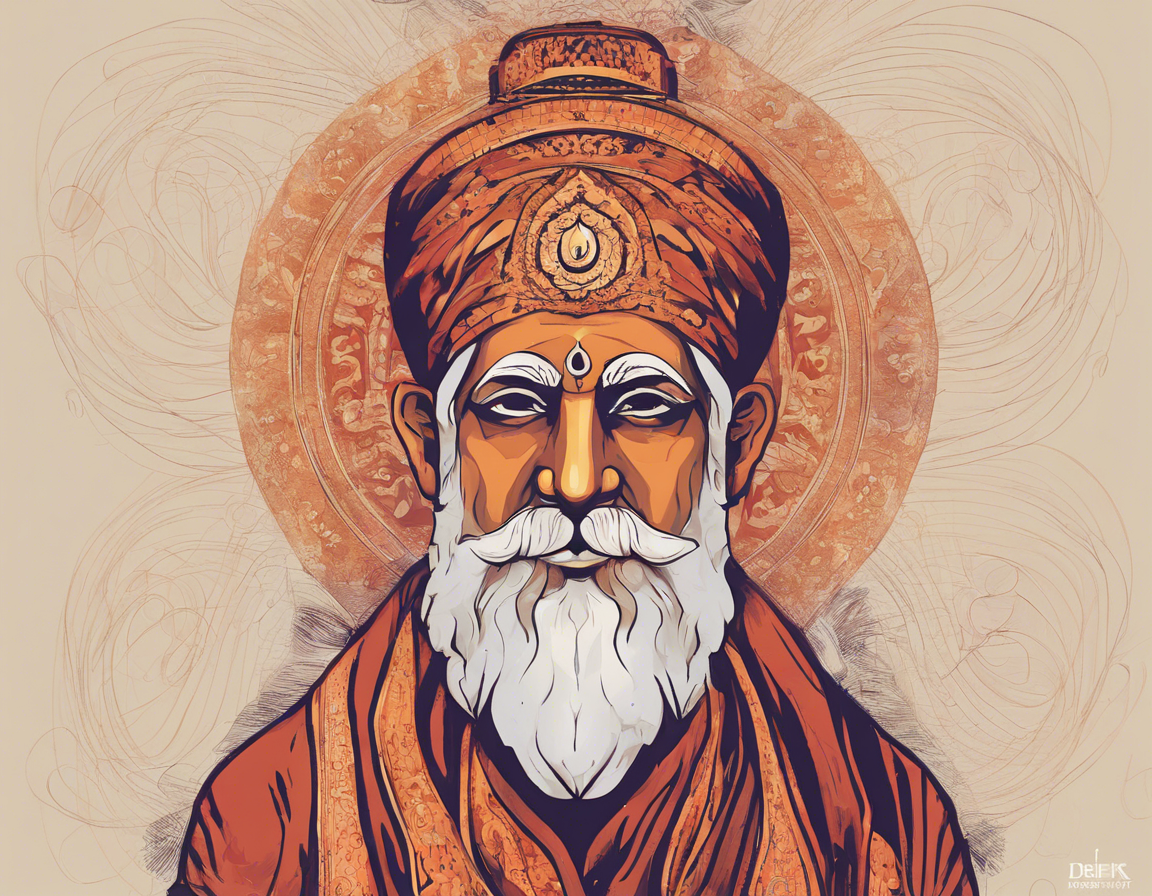The poet-saint Kabir Das, also known as Sant Kabir, was a revered figure in Indian literature and spiritual traditions. His profound teachings and poe
The poet-saint Kabir Das, also known as Sant Kabir, was a revered figure in Indian literature and spiritual traditions. His profound teachings and poetry have left a lasting impact on generations, transcending boundaries of religion and culture. In this blog post, we will delve into the wisdom of Kabir Das Ke Dohe, exploring the timeless messages encapsulated in his couplets.
Introduction to Kabir Das Ke Dohe
Kabir Das Ke Dohe are a collection of couplets that highlight the essence of spirituality, morality, and the ultimate truth of life. These dohas, or couplets, are succinct yet profound, with layers of meanings that invite introspection and contemplation. Written in a simple language that is accessible to all, Kabir’s verses have a universal appeal that resonates with people from all walks of life.
Themes in Kabir Das Ke Dohe
1. Unity of God
Kabir’s dohas emphasize the oneness of God, transcending the boundaries of religious divides. He emphasizes that God is one, and true devotion lies in recognizing this unity.
2. Equality and Brotherhood
The teachings of Kabir underscore the importance of equality and brotherhood among all human beings. He rejects distinctions based on caste, creed, or social status, advocating for a society where everyone is treated with respect and dignity.
3. Detachment and Renunciation
Kabir encourages detachment from material possessions and worldly attachments. He believes that true liberation comes from letting go of desires and embracing a life of simplicity and contentment.
4. Inner Journey and Self-Realization
The poet-saint emphasizes the importance of introspection and self-realization on the spiritual path. Kabir’s dohas guide individuals to look within themselves to discover the divine essence that resides in every soul.
5. Power of Love and Devotion
Love and devotion occupy a central theme in Kabir’s poetry. He extols the transformative power of love as a path to realizing the divine and experiencing spiritual enlightenment.
Key Teachings from Kabir Das Ke Dohe
1. “Dukh me sumiran sab kare, sukh me kare na koye”
In this doha, Kabir emphasizes the importance of remembrance of God during times of adversity. True devotion is not just about seeking solace in moments of happiness but finding strength and resilience in challenging times.
2. “Bura jo dekhan main chala, bura na miliya koye”
This couplet reflects Kabir’s belief in self-reflection and introspection. He suggests that when he went looking for evil in others, he found none. This highlights the idea that by focusing on self-improvement, one can overcome negativity and find goodness in all.
3. “Jaise til mein tel hai, jyon chakmak mein aag”
Kabir uses this metaphor to illustrate the inseparable bond between the individual soul and the divine. Just as a sesame seed contains oil within it and a flint stone carries fire, Kabir suggests that the essence of God resides within every being.
FAQ Section
1. Who was Kabir Das?
Kabir Das was a mystic poet and saint who lived in India during the 15th century. He is revered for his spiritual teachings and poetry that transcends religious boundaries.
2. What language did Kabir write in?
Kabir composed his verses in a form of Hindi known as “Khariboli”.
3. What is the significance of Kabir Das Ke Dohe?
Kabir Das Ke Dohe offer timeless wisdom and guidance on leading a spiritual and ethical life, emphasizing themes of unity, love, and self-realization.
4. Are Kabir’s teachings relevant today?
Yes, Kabir’s teachings remain highly relevant today, offering insights into leading a balanced and meaningful life in the modern world.
5. How can one apply Kabir’s teachings in daily life?
By reflecting on Kabir’s dohas, individuals can cultivate qualities such as love, compassion, and humility in their interactions with others. Practicing simplicity and detachment can also help in living a more fulfilling life.
In conclusion, the teachings of Kabir Das Ke Dohe continue to inspire and guide seekers on the path of spiritual growth and self-discovery. Through his timeless verses, Kabir invites us to reflect on the deeper truths of life and strive for a more compassionate and enlightened existence.


COMMENTS